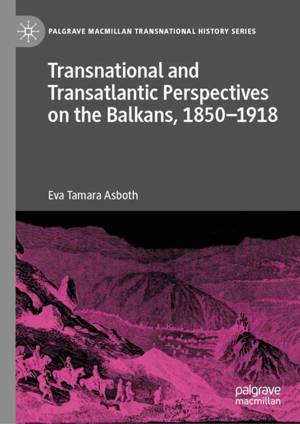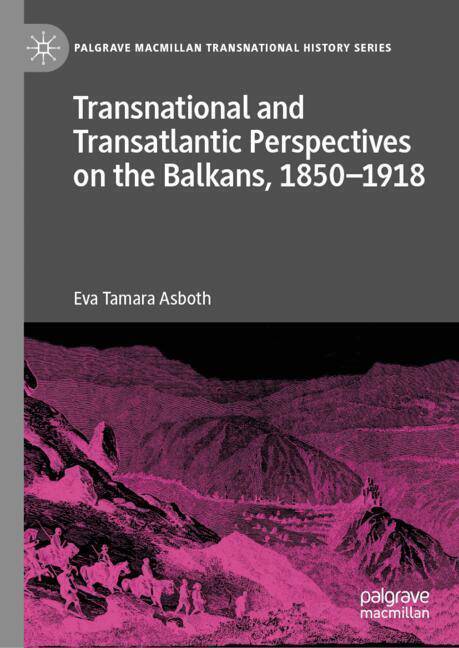
- Retrait gratuit dans votre magasin Club
- 7.000.000 titres dans notre catalogue
- Payer en toute sécurité
- Toujours un magasin près de chez vous
- Retrait gratuit dans votre magasin Club
- 7.000.0000 titres dans notre catalogue
- Payer en toute sécurité
- Toujours un magasin près de chez vous
Transnational and Transatlantic Perspectives on the Balkans, 1850-1918
Historical Balkan Narratives Supported by Felix Philipp Kanitz, Mary Edith Durham, and Mihailo Pupin in the Transnational Public Sphere
Eva Tamara AsbothDescription
This book considers the position and historiography of the western Balkans in modern Europe. It challenges the linear narrative that the region was 'Europeanised' in the twentieth century - that is, brought into a wider fold of European countries through political, social and cultural exchanges. Instead, it develops the concept of a 'European Orient' to highlight how the position of the western Balkans shifted in the European imagination during this period. It investigates specific examples of cultural encounters involving travellers and migrants between South-east Europe and the West, and situates these developments in the context of nineteenth- and twentieth-century geopolitics. In doing so, it shows how European scholars as well as US-migrants from South-east Europe constructed a historiography of the region, and will be of interest to historians interested in the Balkans in particular and south-eastern Europe in general.
Spécifications
Parties prenantes
- Auteur(s) :
- Editeur:
Contenu
- Nombre de pages :
- 309
- Langue:
- Anglais
- Collection :
Caractéristiques
- EAN:
- 9783031691799
- Date de parution :
- 29-04-25
- Format:
- Livre relié
- Format numérique:
- Genaaid
- Dimensions :
- 148 mm x 210 mm

Les avis
Nous publions uniquement les avis qui respectent les conditions requises. Consultez nos conditions pour les avis.






